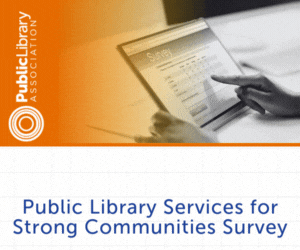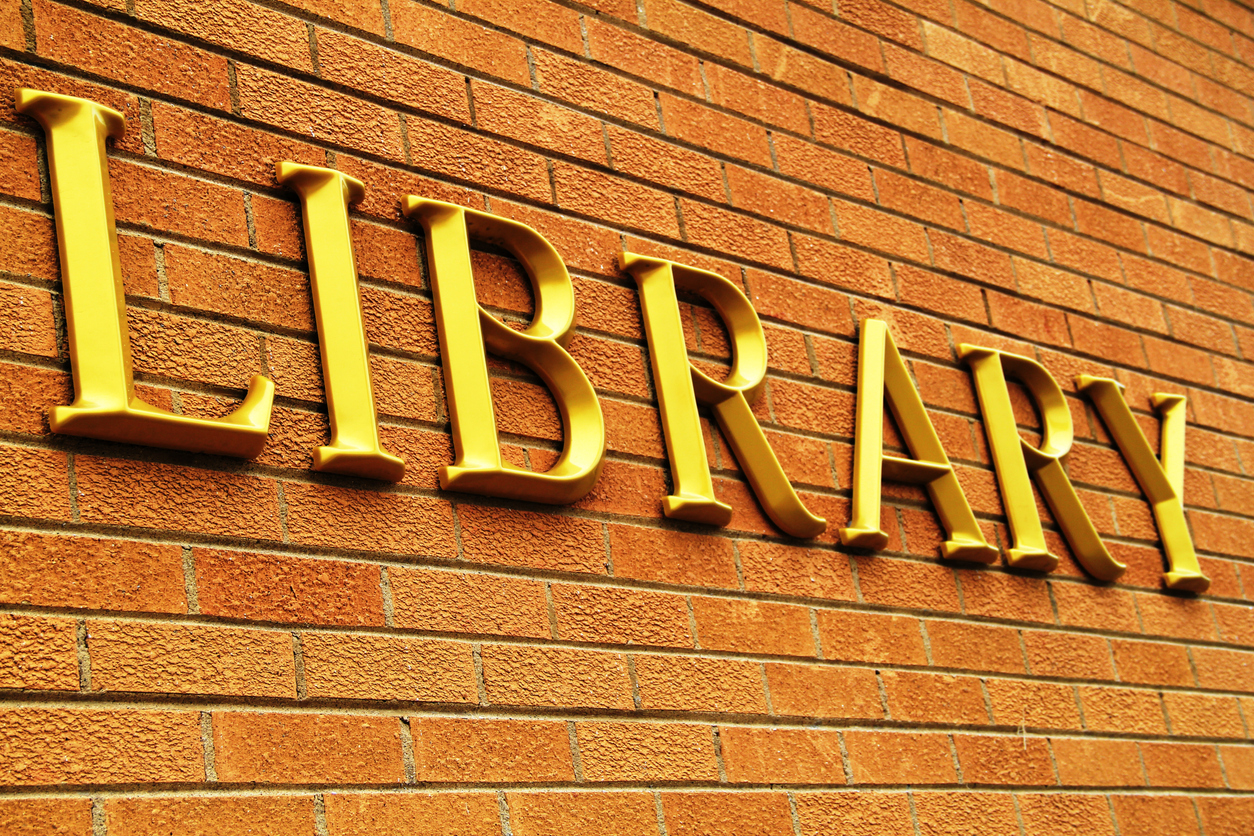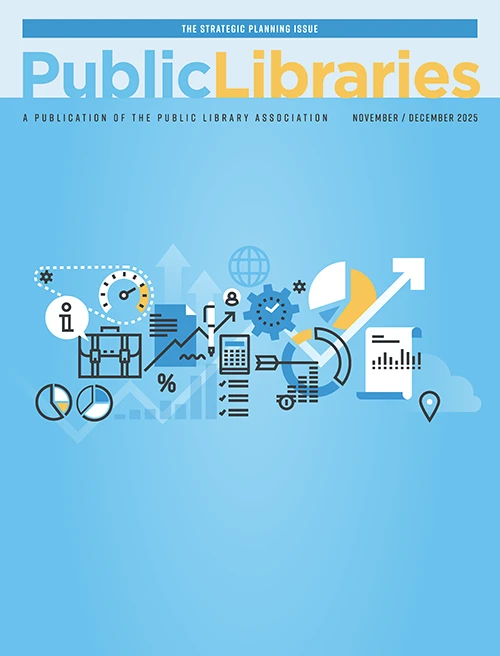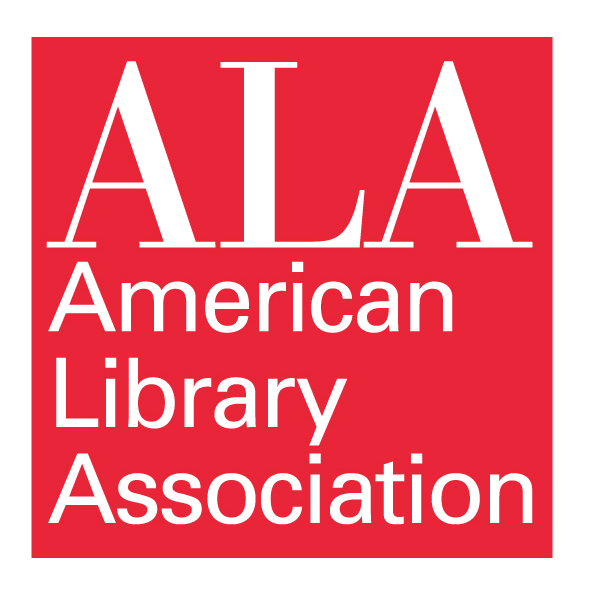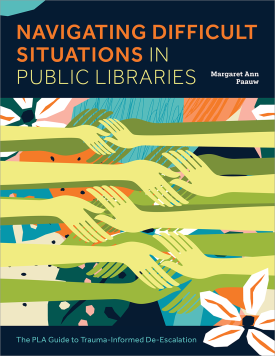A Chorus of Voices Doing Important Work
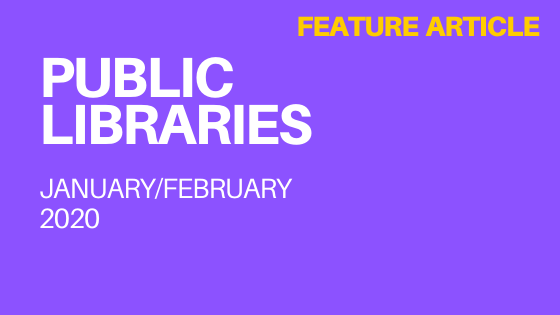
PLA’s Equity & Social Justice Workshops
The PLA Task Force on Equity, Diversity, Inclusion, and Social Justice
Compiled by Kathleen M. Hughes, PL Editor, and Scott G. Allen, Deputy Director, PLA
On the surface, public libraries may appear as egalitarian enterprises and public librarianship an altruistic profession, and in many ways they are. However, working in these ostensibly open and free public space can lull us into an idealized understanding of our place in the ongoing struggle for equity in our communities. To support an understanding of the issues and a culture shift within the profession, the PLA Board of Directors affirmed its commitment to equity, diversity, inclusion, and social justice (EDISJ) in its 2018-22 Strategic Plan.
Leading this effort is the PLA Task Force on EDISJ. The task force has been charged with developing a strategic and coordinated approach for PLA related to EDISJ issues. Task force members make recommendations for how EDISJ content is integrated into PLA programs, elevating successful libraries as models to generate and share best practices. They also identify ways PLA might influence equity and inclusion within public libraries, and help libraries serve diverse communities and staff.
In 2019, the task force developed a new educational opportunity, “Social Justice and Public Libraries: Equity Starts with Us.” During this one-and-a-half day regional symposium, the presenters explore how power and privilege operate interpersonally and institutionally; identify how oppression shows up in our communities and libraries; and share information about historical and contemporary social-justice movements. Participants hear from libraries putting equity into practice, develop regional connections, and create local action plans to advance equity and social justice in our organizations and communities. They leave with actionable and meaningful strategies to put into place upon return to the library. The training is led by Mia Henry — founder and principal of Freedom Lifted, a company providing civil rights tours of the Deep South and social-justice trainings – and members of the PLA Task Force on EDISJ.
As the EDISJ symposium enters its second year, Public Libraries focuses on the program and its presenters, offering a chance to discover what they are learning as they help move the field toward resistance and solidarity. In December 2019, we engaged with nine of the symposium’s presenters, who were eager to share their insights and experiences.
Jessica Anne Bratt
Youth Services Manager, Grand Rapids (MI) Public Library
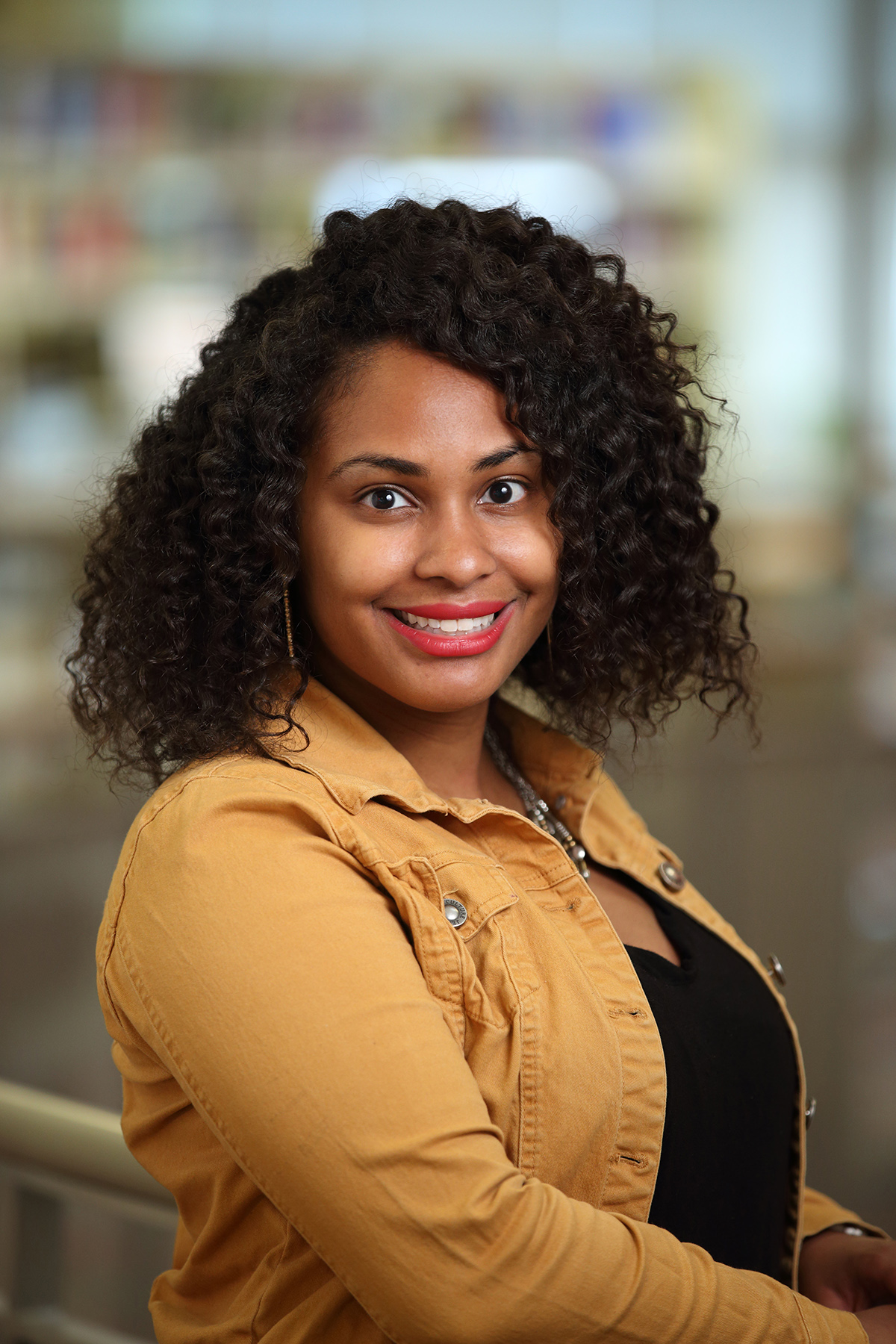
Jessica brings a high level of passion to her job as youth services manager at the Grand Rapids (MI) Public Library. She began the DigiBridge partnership with Grand Rapids Public Schools and received national recognition as a Library Journal Mover & Shaker. She writes reviews for library trade publications, serves on the Board of Directors for the Michigan Library Association and on the ALA 2019 Coretta Scott King Book Award Jury Committee, and presents nationwide (“Let’s Talk About Race in Storytimes”). Jessica’s coolest millennial moment was being interviewed for the 2017 MTV News article, “In Trump’s America, Activist Librarians Who Won’t Be Shushed.” Her newest adventure revolves around trying to balance her gaming life with motherhood.
You helped develop and present the PLA training program, Social Justice and Public Libraries: Equity Starts with Us. What have been your goals and hopes for the public library field as a result of this work.
That we keep coming together to figure out what liberation looks like. It is not a one-size-fits-all model necessarily, but if we have a shared framework of understanding what oppression looks like, we can then go forward in figuring out what successful strategies look like for solidarity and resistance, in hopes of one day achieving liberation.
If you could distill what you learned from these events into one bit of advice for public libraries across the country, what would that be?
We have the power to create an America this has not yet been created. Collectively, we need to figure out how to successfully wield our power for that change, because no one is free until all are free.
Participants in the training are asked to think about how power and oppression impact different aspects of public library programs, services, and operations. Whose labor is overused and undervalued? Whose experiences and perspectives are excluded, and what cultures or backgrounds are being co-opted or exoticized? As a facilitator of theses discussions, what did you hear that surprised you?
Actor/observer bias. Many people think that other people need to change in their institutions, instead of focusing on where they are in their own journey. In order to create systemic change, people need to understand how they fit into helping create or advocate for that change.
What is your favorite resource to recommend to library colleagues on this topic?
For looking at how cities and neighborhoods were created and what that might mean around access to opportunity and resources, we promote the interactive website, Mapping Inequality: Redlining in New Deal America. This tool was created by four universities (University of Richmond, Virginia Tech, University of Maryland, and John Hopkins University) and combines maps and revealing backstories from how the federal government categorized neighborhoods, based largely on race, to determine mortgage eligibility. Library staff will find it illuminating to view their own communities at http://bit.ly/2utqYc6.
Project READY from the University of North Carolina and its partners features tools and resources for programming around anti-bias education for young children. See http://ready.web.unc.edu.
Katie Dover-Taylor
Reference Librarian, William P. Faust Public Library (Westland, MI)
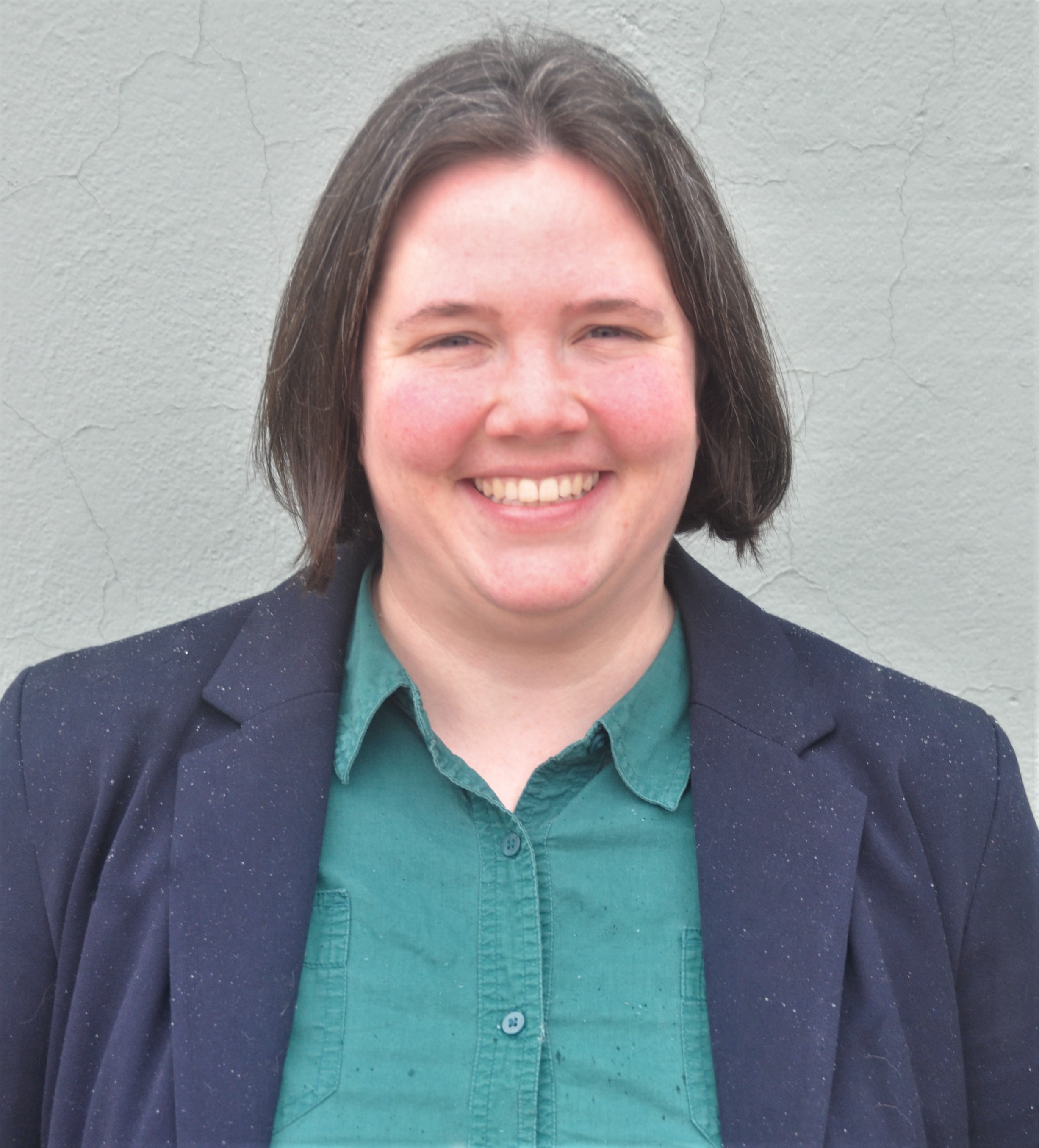
Katie (she/her/hers) coordinates technology training for adult learners and serves as chair of the library’s staff union. Over the past several years, she has approached social-justice work in libraries through both community organizing and scholarship. In 2015, she was a founding co-coordinator of the Radical Libraries, Archives, and Museums track at the Allied Media Conference in Detroit. She coauthored a chapter on white, anti-racist librarianship for the book, Topographies of Whiteness: Mapping Whiteness in Library and Information Science (Litwin Books, 2017).
Talk about your background and how you became involved in racial equity and social-justice work.
I’m a white, queer ciswoman who was born and raised in the city of Detroit. Growing up in a mixed-race neighborhood and attending a predominantly black high school gave me an awareness of race and my own whiteness from a young age, but it has taken me many years to develop the courage, self-awareness, and tools to truly engage in the work of racial equity and social justice. In my library career, I have sometimes been frustrated by how far our common practices and institutional cultures can be from the ideals and values that brought me to librarianship. My work is currently driven by a sense of both urgency and curiosity: what does library work done in solidarity with marginalized communities actually look like?
You helped develop and present the PLA training program, Social Justice and Public Libraries: Equity Starts with Us. What have been your goals and hopes for the public library field as a result of this work.
One of my goals has been to help public librarians and library workers become more comfortable talking about topics like race, whiteness, cultural dominance, and marginalization, and then move beyond talking to transform our culture and shape systemic change. It is my hope that we can continue to build the movement within libraries and among library workers to develop institutions that are truly equitable, inclusive, and diverse, embedded in and accountable to their communities.
If you could distill what you learned from these events into one bit of advice for public libraries across the country, what would that be?
There are countless libraries and library workers across the country engaged in this work, but so many of us feel isolated or powerless to effect change in our own institutions or our own communities. My one piece of advice would be to connect with other people committed to equity and justice, both inside and outside of the library field, and to find ways to be accountable to each other, to grow and learn in relation to one another, and to move forward together. One of the big things I think people have taken away from these events is the realization that we are more powerful than we think, especially if we act collectively.
As a facilitator of discussion at the Equity Starts with Us events, what did you hear that surprised you?
One thing I have discovered through many conversations is that there is a near-universal disconnect between directors and their staff members in evaluating progress toward equity goals. When you speak to administrators and non-supervisory employees from the same institution, you tend to hear entirely different stories about climate and culture. This is a problem we should all be thinking about.
What is your favorite resource to recommend to your library colleagues on this topic?
In challenging time, I turn to Audre Lord for inspiration and analysis, especially her essays and speeches in Sister Outsider (Crossing Press, 1984).
Any other thoughts to share with PL readers?
I want to thank Mia Henry for her work as our facilitator for the Equity Starts with Us trainings. I am also incredibly grateful to the PLA staff for coordinating the work of our task force, and to the PLA Board for ensuring continued support for this work by making EDISJ both a core value and a goal of its strategic plan.
Annie Weatherby-Flowers
Community Engagement Coordinator, Madison (WI) Public LIbrary
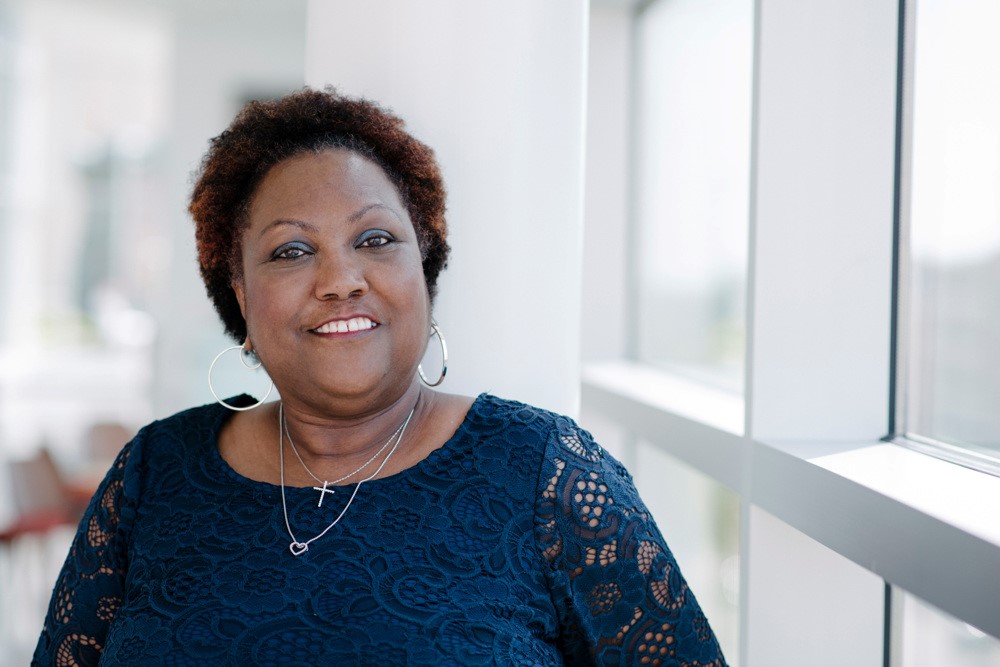
For more than thirty years, including twenty with the City of Madison, Annie has been a change agent, leading community initiatives and training around poverty, mental health, economic development, crime prevention, civil rights and affirmative action, diversity and inclusion, equity and social justice, substance abuse, and HIV. She is also the chair of the Dane County (WI) Equal Opportunities Commission and a members of the advisory board of University of Wisconsin-Madison’s All of Us research project. She received a BS in psychology and an MA in education with a concentration in adult learning. She is also a licensed clinical substance abuse counselor.
Talk about your background and how you became involved in racial equity and social-justice work.
I have thirty-plus years of experience working on issues of poverty and social-justice issues that impact communities of color in both Madison and Milwaukee (WI). I have been involved in the development of community education, training on civil rights, fair employment, disability rights, and housing laws and I have overseen initiatives and programming in regard to diversity, race relations, equity, and social justice.
What have been your goals and hopes for the public library field with regard to equity and inclusion?
We need to begin to engage libraries in creating spaces that remove barriers, eliminate perceptions to help them begin to provide services to the community through an equity lens, in order to create welcoming spaces, provide better access to information, and consider strategic ways of engaging their communities.
What is your favorite resource to recommend to your library colleagues on this topic?
Dr. Joy DeGruy is one of my favorite resources. Dr. DeGruy has a background in social work and her research focuses on the intersection of racism, trauma, violence, and American chattel slavery. I encourage others to read about post-traumatic slave syndrome and more at www.joydegruy.com.
Dr. Eddie Moore founded The Privilege Institute, which is the umbrella organization for the White Privilege Conference and the online journal, Understanding and Dismantling Privilege. More on Dr. Moore’s work including his 21-Day Racial Equity Habit Building Challenge is at www.eddiemoorejr.com.
Jason Kucsma
Director/Fiscal Officer, Toledo-Lucas County (OH) Public Library
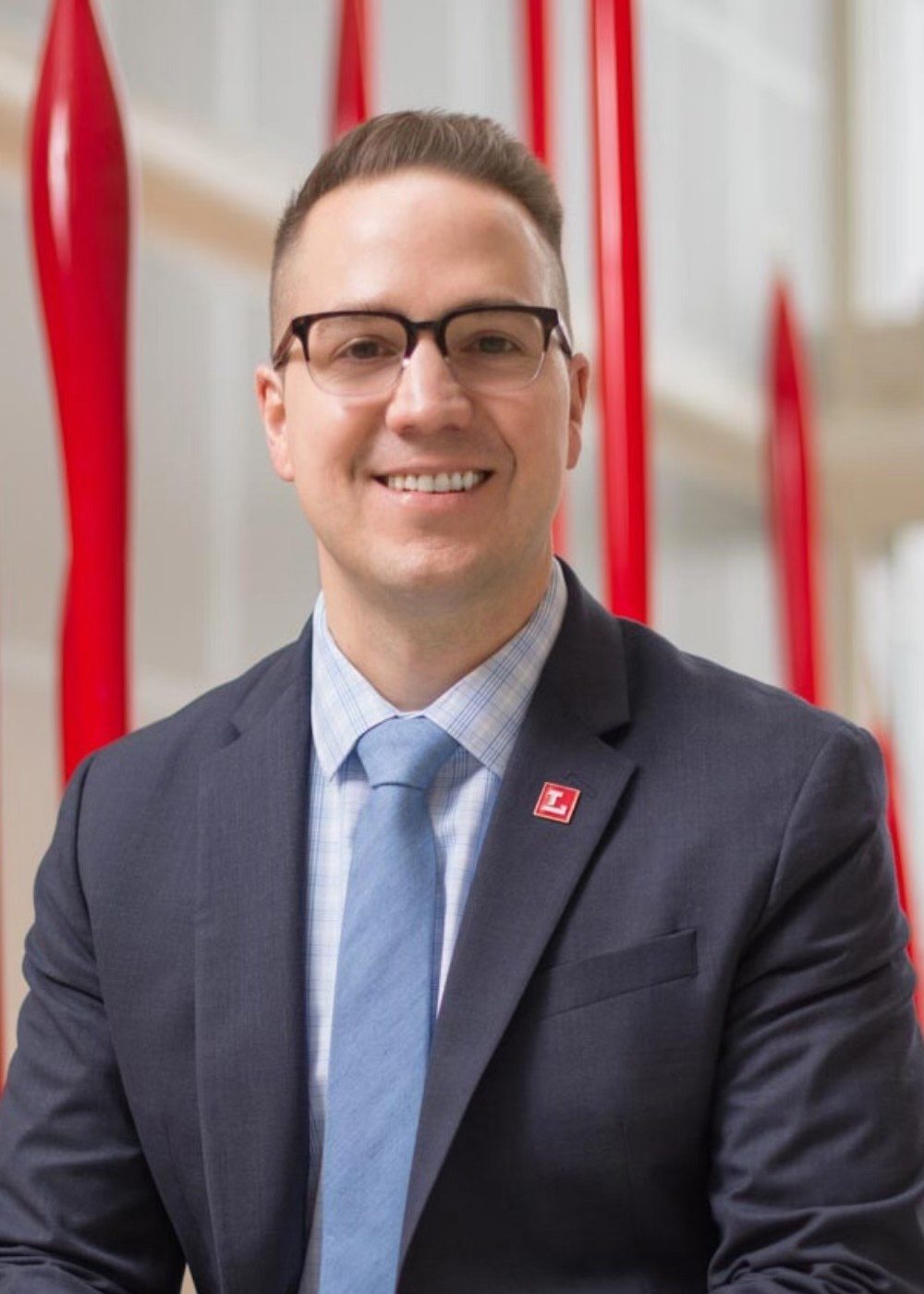
Jason earned his master’s degree in library and information science at the University of Arizona before moving to New York City to work with public, academic, school, and special libraries at the Metropolitan New York Library Council. His twelve years of library leadership come after nearly a decade leading a nonprofit independent media organization and publishing an internationally distributed politics and culture magazine (Clamor, 1999-2006). His work in libraries is informed by his dedication to the role public libraries play in building strong communities through equitable access to information and technology — and the expertise librarians bring to help navigate both.
Talk about your background and how you became involved in racial equity and social-justice work.
I came to librarianship and this work in social justice after about twelve years working in independent media. I cofounded a progressive politics and culture magazine (Clamor) and started a nonprofit aimed at bringing together independent media makers doing social-justice work in their communities in the 90s and early aughts. (Allied Media Conference, still going strong in Detroit!) For me, the connection between independent media amplifying underrepresented voices has a decidedly social-justice impact, and our work in public libraries has (or can have) social justice baked into the work we do as well.
You helped develop and present the PLA training program, Social Justice and Public Libraries: Equity Starts with Us. What have been your goals and hopes for the public library field as a result of this work?
I’m particularly proud of the fact that the PLA Task Force on EDISJ and the trainings have been part of a chorus of voices in our industry doing important work to address issues of inequity in our organizations and the programs and services we provide for our communities. We’ve known these have been issues in librarianship for a long time, and I think our industry’s perfectionism can be paralyzing at times. These trainings have been able to start a conversation in many public libraries or advance conversations that have already begun.
If you could distill what you learned from these events into one bit of advice for public libraries across the country, what would that be?
As the training title suggests, “equity starts with us.” No matter where you are in an organization, start a conversation. How that conversation progresses (or doesn’t) from there will give you an indication of how steep the climb is ahead for you and your library. I’d also remind people to not let perfection keep you from diving into this important work. You will make mistakes along the way, and that’s part of our personal, professional, and organizational growth.
As a facilitator of discussions at the Equity Starts with Us events, what did you hear that surprised you?
I think one of the most surprising things I heard was a library who had hired a diversity and inclusion officer but was still reluctant as an institution to dig into the work that they hired the person to do. I’m surprised (kind of) to hear there are libraries out there who have hired people to help their work around equity and inclusion without giving them the resources (especially institutional buy-in) they need to be successful in their work.
What is your favorite resource to recommend to your library colleagues on this topic?
It’s not directly related to this issue, but I think everyone working in public libraries needs to read Eric Klinenberg’s Palaces for the People: How Social Infrastructure Can Help Fight Inequality, Polarization, and the Decline of Civic Life (Broadway Books, 2018). It’s a terrific reflection on how public libraries serve as social safety nets for people across the country, and equity is at the heart of that reflection.
Sarah Lawton
Neighborhood Library Supervisor, Madison (WI) Public Library
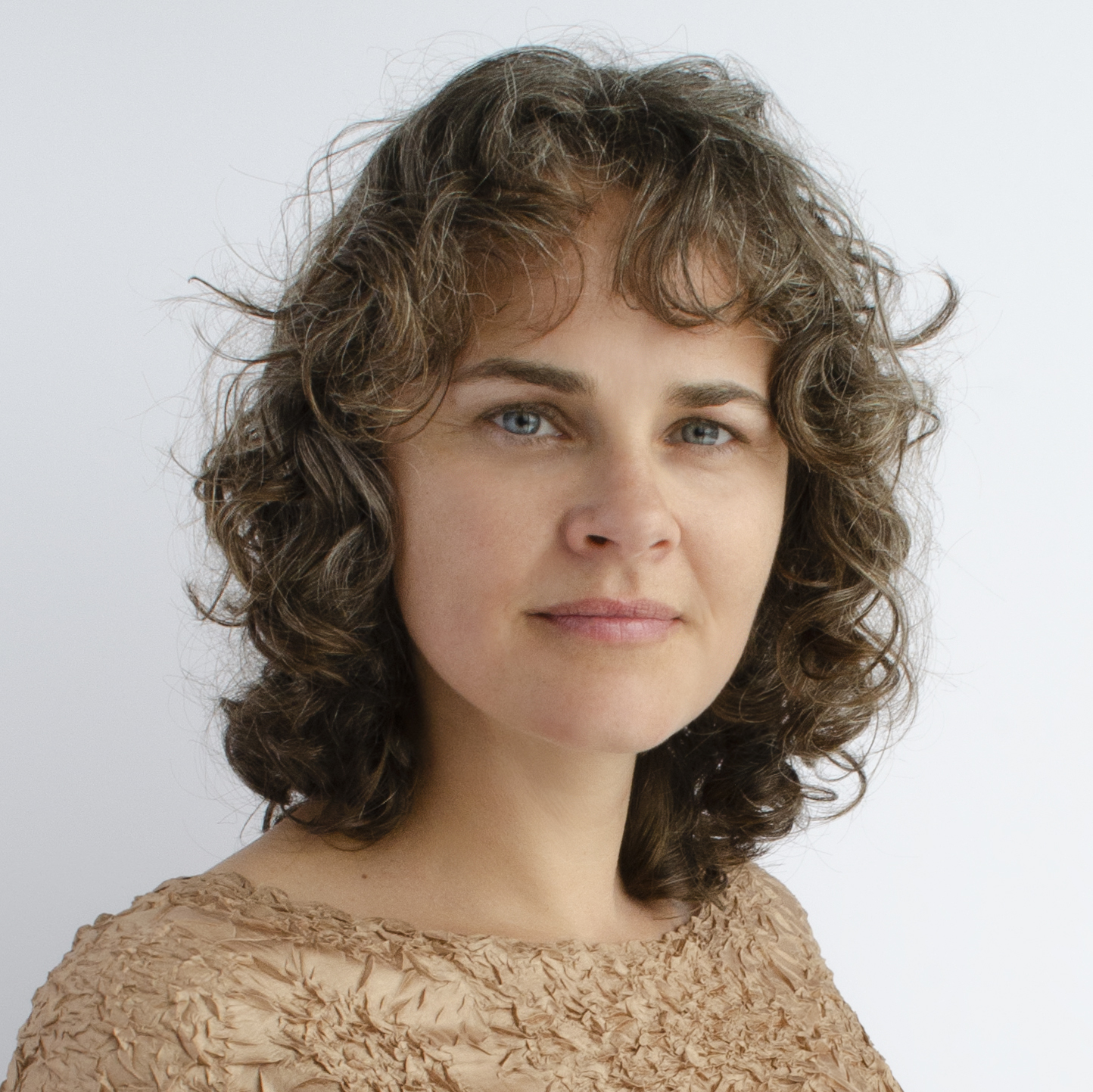
At Madison (WI) Public Library, Sarah has developed racial-equity trainings, engaged in community-led assessment and planning, and applied racial-equity analysis to numerous city and library policies, plans, and programs over the past five years. She is a leader of the Government Alliance on Race and Equity (GARE) Library Interest Group and a member of the PLA Task Force on EDISJ.
Talk about your background and how you became involved in racial equity and social-justice work.
I became involved with racial-equity work in 2013, when a cross-departmental team of City of Madison employees was established to look at government’s role in perpetuating racial disparities. Working with colleagues from the City of Seattle and Multnomah County, the team developed training and tools that were focused on promoting equity in City operations, budgets, and community-engagement strategies. The national community of practice that was developing around this work evolved into the Government Alliance on Race and Equity, which was established by Julie Nelson and Glenn Harris as an initiative of the Center for Social Inclusion.
The first time I attended a GARE convening, I was struck by the parallel conversations that were happening related to civic discourse and community engagement. What differentiated the space from library discussion and initiatives was the diversity of the community organizing through GARE, the explicit and intentional focus on race as the primary predictor of well-being in the United States, and the emphasis on working across institutions to interrupt the machine of structural racism. I was galvanized when I realized that there were no other librarians at the first national convenings, and that many of those involved in the work (many from public health departments or departments of civil rights) were not thinking of their libraries as natural allies.
One of the reasons for this was because of the lack of diversity in library workers at all levels. I started to focus my efforts at Madison Public Library on reworking the hiring process, specifically for paraprofessional library assistant positions. I also dedicated myself to training — both creating and supporting structured training for library staff and engaging in ongoing personal work to better understand and interrupt my own bias and how racism has shaped my worldview. Finally, I worked alongside colleagues from California, Illinois, Michigan, and elsewhere to organize librarians to step into this important work. I see racial-equity work as a cornerstone of libraries–public institutions charged with the responsibility for shaping our shared cultural narrative.
You helped develop and present the PLA training program, Social Justice and Public Libraries: Equity Starts with Us. What have been your goals and hopes for the public library field as a result of this work?
My hope is that libraries will continue to shift from gatekeeper institutions that provide resources to some to a platform that is a source of opportunity for all. I think that doing this requires taking an honest look at how our institutions were set up, who benefits and is burdened by our policies and procedures, and who feels comfortable taking leadership in our spaces. I hope that libraries will move beyond just thinking about diversity (higher numbers of people from different backgrounds) or inclusion (people from traditionally underserved or marginalized communities being allowed into the dominant paradigm) to a focus that centers action to promote equity and justice.
If you could distill what you learned from these events into one bit of advice for public libraries across the country, what would that be?
I have learned that library workers are ready to drive change and that the place to being is in building strong communities of practice, on all levels (local, regional, and national). If we want to change our institutions, we have to be willing to allow our profession to change. I think that a lot of times people view the idea of institutional change as a threat to the profession. I think we have an amazing opportunity to redefine our professional philosophy from one of service to one that centers on justice.
As a facilitator of discussions at the Equity Starts with Us events, what did you hear that surprised you?
I heard so many librarians talking about the need to rethink the structure of library staffing and the MLIS requirement in particular. It seems like people are more willing to have this conversation than they were even a year or two ago. I was so impressed by the caliber of the conversations in the small groups and the ideas that people had for how resources allocation, staffing, programs, and collections could be approached if we’re looking at creating equal opportunities rather providing equal services.
What is your favorite resource to recommend to your library colleagues on this topic?
Gosh, so many. It really depends on where they are coming from and what questions they are asking. I frequently share resource from the GARE website, including “Advancing Racial Equity in Public Libraries,” written by Amy Sonnie and published in 2018. I also frequently share Multnomah County’s equity and empowerment lens materials to those who are looking to understand and apply racial-equity analysis. I frequently recommend Ibram Kendi’s books and talks and Ijeoma Iluo’s So You Want to Talk About Race (Seal Press, 2018). I also recommend the Witnessing Whiteness curriculum (http://witnessingwhiteness.com) as a good tool for white people focusing on personal transformation to support anti-racist action.
Any other thoughts to share with PL readers?
I think that there’s a tendency for white people working on racial equity to end up focusing most of the resources and discussion on…whiteness. This makes sense and it is important for white people to take responsibility for their own learning. At the same time, we need to be careful that we aren’t focusing all of our training resources and professional development on helping white people to better understand racism without actually doing anything to make tangible change in the communities most impacted. We need to look to Black, Indigenous, and People of Color (BIPOC) people in the library field — those who have been here for a long time and to whom we owe gratitude as trailblazers, and to those who are emerging as new leaders –NOT to teach white people, but with resources and support to ensure that our professional culture is open and affirming.
Amita Lonial
Assistant Library Director, Tacoma (WA) Public Library
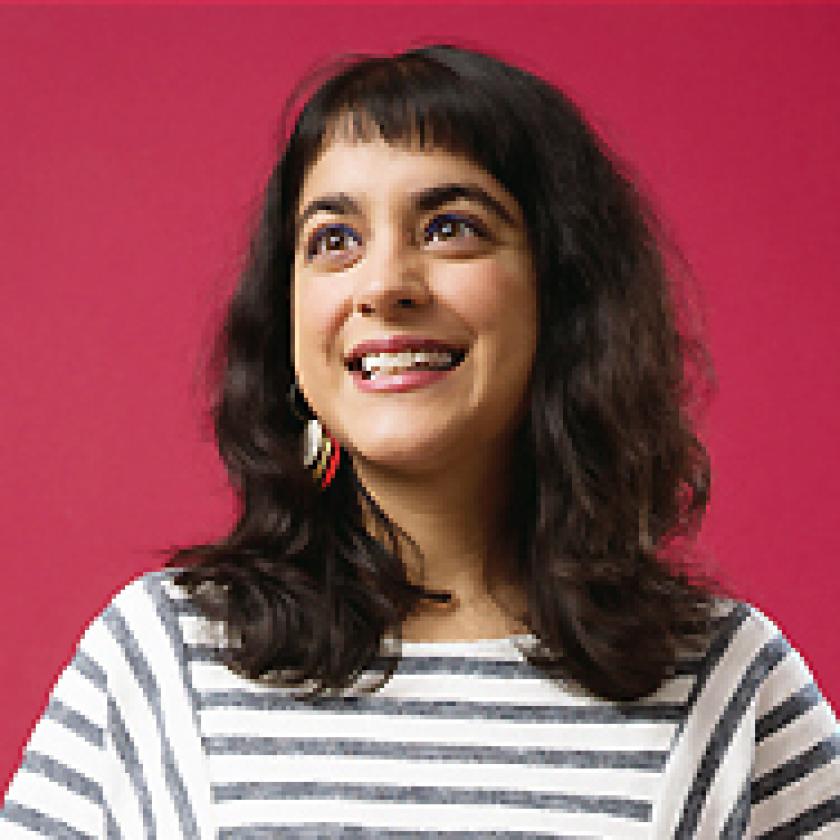
Amita served as co-chair for the PLA Task Force on EDISJ from 2017-19 and currently sits on the PLA Board of Directors. She is deeply committed to exploring how libraries can create racially-just and equitable communities through public programs and services.
Talks about your background and how you became involved in racial equity and social-justice work.
As a queer femme of color, I have always been drawn to do work that advances freedom, justice, and liberation for all marginalized and oppressed peoples. Before becoming a librarian, I spent eight years in the grassroots nonprofit sector supporting direct action organizing in the areas of racial and economic justice. Becoming a librarian made sense to me. The liberated future I imagine has beautiful libraries everywhere!
You helped develop and present the PLA training program, Social Justice and Public Libraries: Equity Starts with Us. What have been your goals and hopes for the public library field as a result of this work?
My hope has been to provide library workers with the tools and knowledge to not only clearly communicate their values around equity and social justice, but also to know what it looks like to practice, engage, and lead with those values. The training does a fantastic job of asking participants to interrogate their own power and privilege as a critical foundation for dismantling institutional inequities.
If you could distill what you learned from these events into one bit of advice for public libraries across the country, what would that be?
Mia Henry leads her session reminding us that all of us have work to do in building a just world. My advice is to remember that no matter what your particular environment or circumstance looks like, you have an opportunity to show up for this work and make a difference.
What is your favorite resource to recommend to your library colleagues on this topic?
The GARE report, “Advancing Racial Equity in Public Libraries: Case Studies from the Field,” is a great resource, which is why we include it in the training session and link to it from the PLA Task Force’s webpage.
Any other thoughts to share with PL readers?
Learning from Mia is a gift that keeps on giving. If you haven’t participated in the training, I strongly urge you to sign up for one if and when you are able!
Lois Langer Thompson
Executive Director, Sno-Isle Libraries (WA)
Lois and her team at Sno-Isle Libraries in Washington State are working on the intersection of equity, diversity, inclusion, and social justice by looking at policies and practices to see where the library may have put barriers in place. Previously, she was director of the Hennepin County (MN) Library. She is the co-chair of the PLA Task Force on EDISJ.
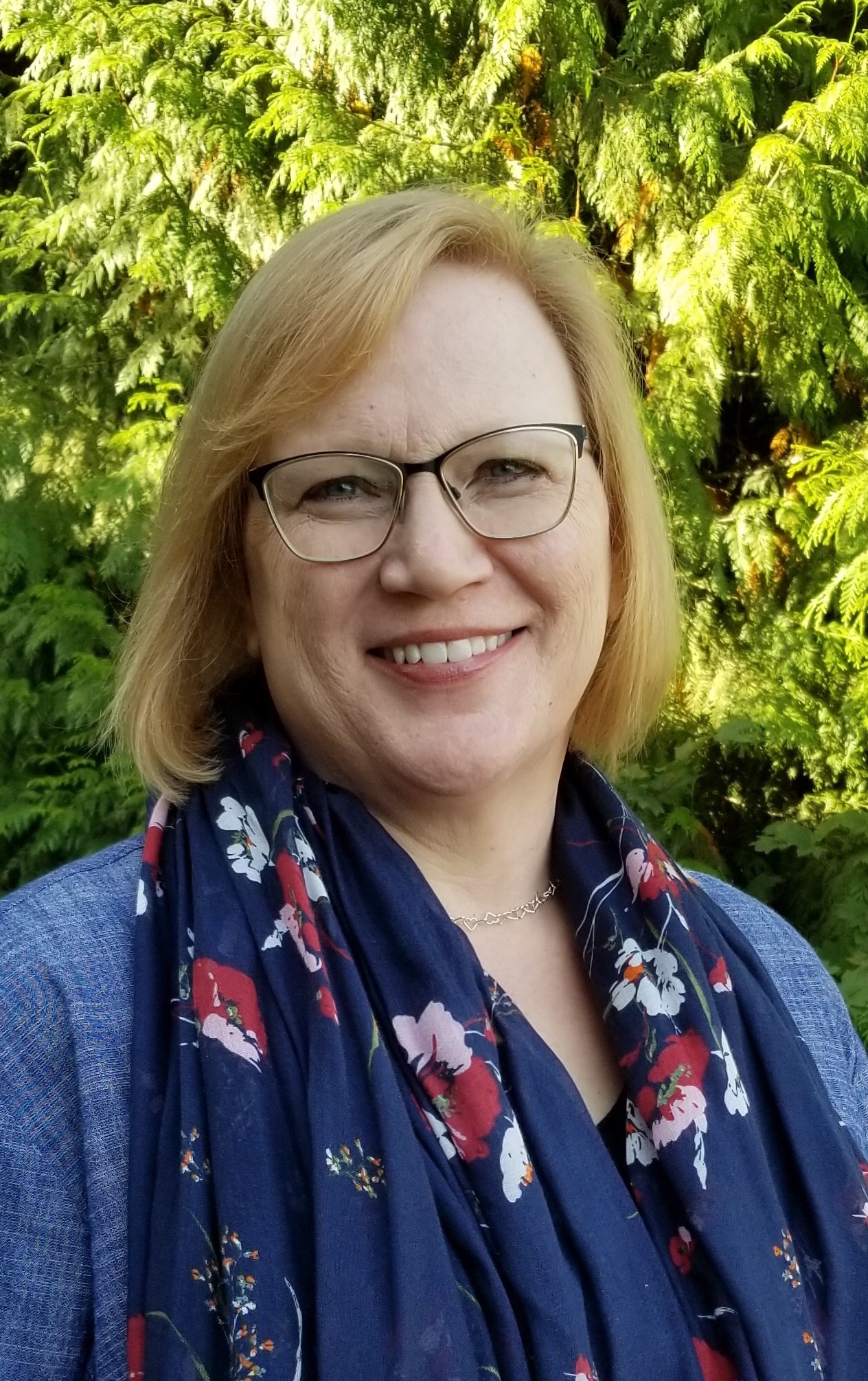
Talk about your background and how you became involved in racial equity and social-justice work.
I believe that everyone has value and purpose, and everyone deserves to be seen and heard — not simply looked at and listened to, but truly seen and heard. Professionally, my work began as sponsor of our library’s diversity team. We focused on building a diverse collection, promoting cultural awareness, and celebrating lots of holidays. It was a start, but the deeper work of racial equity and social justice requires moving form looking and listening to seeing and hearing.
You helped develop and present the PLA training program, Social Justice and Public Libraries: Equity Starts with Us. What have been your goals and hopes for the public library field as a result of this work?
Library staff are always focused on how best to serve our customers and communities. My hope is that through this training, library staff develop the skills needed to ensure equity is a priority in their organization and that library staff experience their workplace and inclusive and equitable.
If you could distill what you learned from these events into one bit of advice for public libraries across the country, what would that be?
If you are white, approach the work with humility and care in order to avoid harm to people of color and additional marginalized people and communities.
As a facilitator of discussions at the Equity Starts with Us events, what did you hear that surprised you?
As a library director, I was reminded that this is a journey for everyone, and we need to honor each person on their journey. Rather than judge where someone is, the value is in inviting them to go deeper and further on their journey. This is especially important for those of us with positional power and how that can impact all aspects of library services and library staff.
What is your favorite resource to recommend to your library colleagues on this topic?
From the training, I love to recommend the Power Flower (a tool developed by Canadian social-change educators used when working with groups to identify who we are, and who we aren’t as individuals and as a group, in relation to those who wield power in our society). I also like to recommend books and podcasts that white people can access for a glimpse into the impact inequity has on people of color and other marginalized groups. These include How to Be an Antiracist by Ibram X. Kendi (One World, 2019); I’m Still Here: Black Dignity in a World Made for Whiteness by Austin Channing Brown (Convergent Books, 2018); and The Next Question: The Video Web Series Imagining How Expansive Racial Justice Can Be, hosted and produced by Austin Channing Brown, Jenny Booth Potter, and Chi Chi Okwu.
Any other thoughts to share with PL readers?
I have attended the training as both a participant and a facilitator. It is an honor to be with other library staff and engage in learning and committing to equity for all. There is a place and a need for everyone in this work.
Christina Fuller-Gregory
Makerspace Librarian/Spartanburg County (SC) Public Libraries
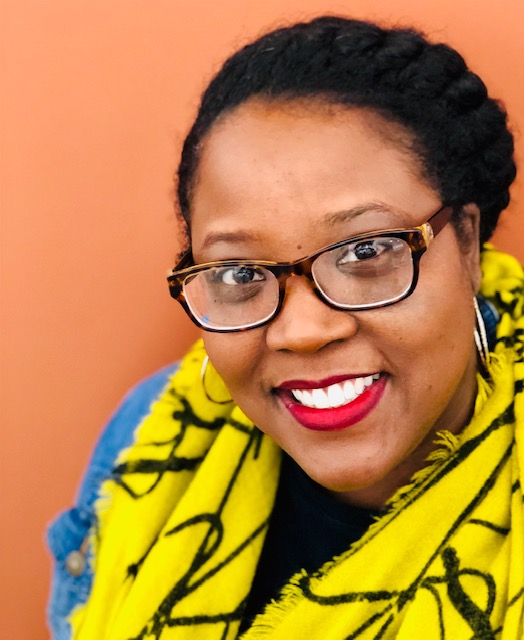
Christina served on PLA’s inaugural EDI Task Force and now co-chairs the group. In addition to her work with PLA, Christina leads her library’s EDISJ committee, which works to develop library policy and procedure supporting both internal and external EDI. Before becoming a librarian, she worked for five years in the marketing and communications industry. Christina is a firm believer that the willingness to start the conversation is one of the most important steps needed to support library-based EDI initiatives.
You helped develop and present the PLA training program, Social Justice and Public Libraries: Equity Starts with Us. What have been your goals and hopes for the public-library field as a result of this work?
One of my main goals and hopes for the public library field is to nurture honest and open dialogue about equity, diversity, and inclusion — I’d particularly like to see the public library field address and examine racial equity. Before we’re able to mitigate issues of racial equity in the profession, we must first be able to recognize that this specific brand of inequity exists. Equity Starts with Us is the groundwork that prepares library staff for the continued foundational work that must be done if we’re ever to support a profession that has leaders, at every level of the organization, who are reflective of the communities they serve.
If you could distill what you learned from these events into one bit of advice for public libraries across the country, what would that be?
The beauty of Equity Starts with Us is that we bring together attendees who have varying degrees of experience with EDISJ work. In spite of this, the commonality is a shared experience that is rooted in a desire to create profound change. Change only begins when we demonstrate a willingness to start this conversation. Whether your library is new to EDISJ or you work in an organization that has a set committee or task force committed to this important work, I encourage you to find ways to start the conversation!
As a facilitator of discussions at the Equity Starts with Us events, what did you hear that surprised you?
I was most surprised by the reactions of participants as they began to realize the ways in which they had “oppressed” others by using their positions of power to overuse, undervalue, exclude experiences or perspectives, or co-opt cultures or backgrounds. We often move through the world without considering our individual power and how we misuse it. As participants thought about this and examined their roles as oppressor or oppressed there was a sense of connectedness between participants that was born out of the realization that at some point in each of their lives, they’d experienced what it was like to be both powerful and powerless.
What is your favorite resource to recommend to your library colleagues on this topic?
One of my favorite books to recommend to library colleagues is Topographies of Whiteness: Mapping Whiteness in the Library Profession edited by Gina Schlesselman-Tarango (Litwin Books, 2017). I absolutely have learned so much from this book. I also highly recommend Information Services to Diverse Populations: Developing Culturally Competent Library Professionals by Nicole A. Cooke (Libraries Unlimited, 2016).
Richard Kong
Director, Skokie (IL) Public Library
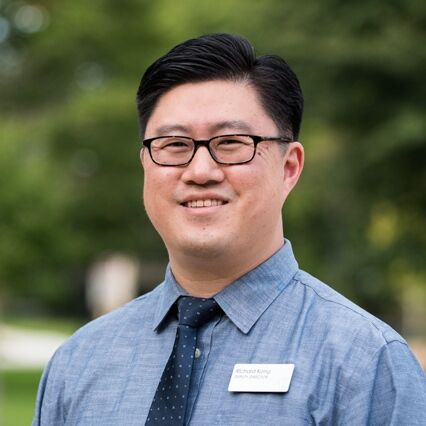
Richard was co-chair of the inaugural PLA Task Force on EDI and a director-at-large on the PLA Board of Directors. At the Skokie (IL) Public Library, he serves a very diverse, vibrant community and has made significant strides in the pursuit of equity and social justice through lots of dialogue and education. Richard earned degrees from Oberlin College (BA), Princeton Theological Seminary (MDiv), and University of Michigan’s School of Information (MSI).
You helped develop and present the PLA training program, Social Justice and Public Libraries: Equity Starts with Us. What have been your goals and hopes for the public library field as a result of this work?
One of my hopes is that, through this training, public library leaders would come away with a strong belief that the pursuit of equity, inclusion, and social justice needs to be the foundation of everything else we do, including the public services we offer our communities and the way in which we run our libraries.
If you could distill what you learned from these events into one bit of advice for public libraries across the country, what would that be?
I would advice all public library leaders, and anyone who is associated with libraries and has the potential to lead and influence others, to be courageous in speaking out and doing what’s right. We can be an encouragement to one another as we work together to stand against oppression.




